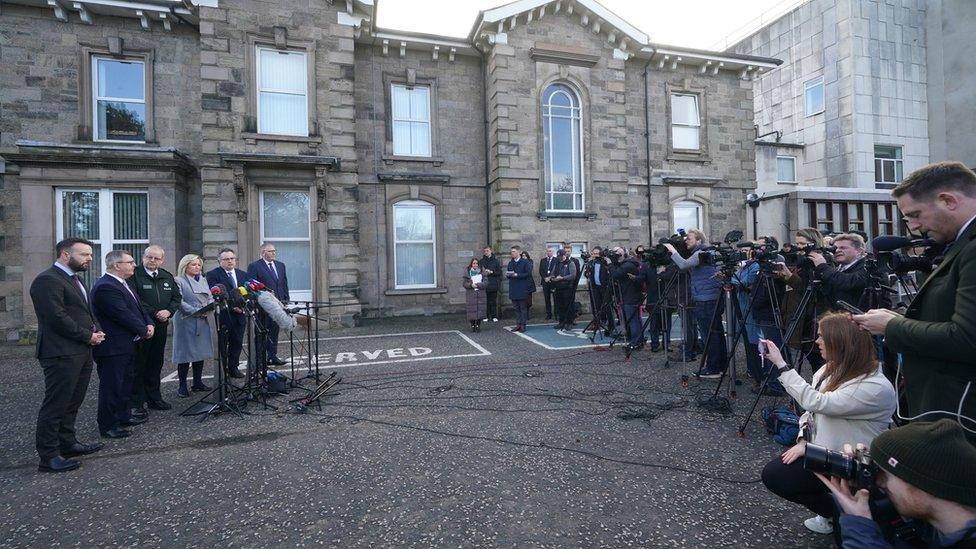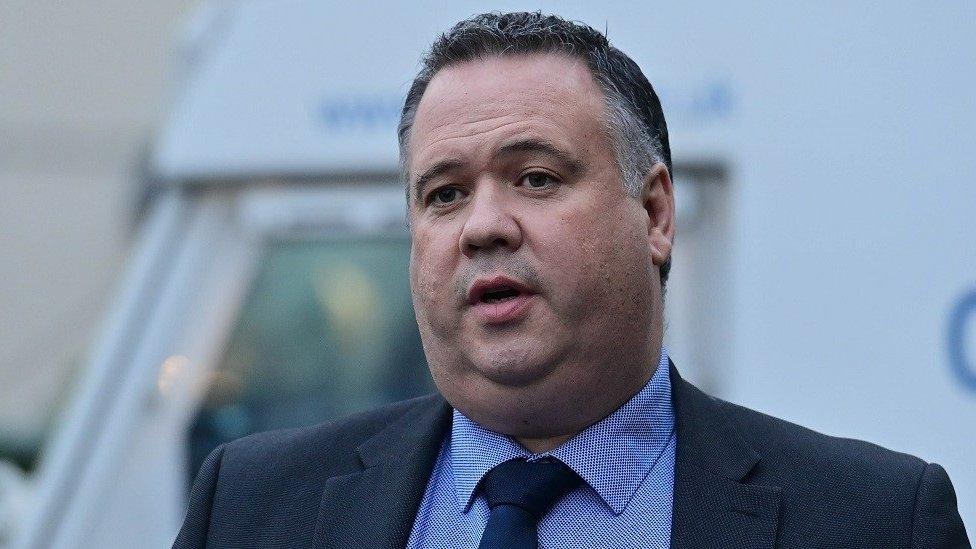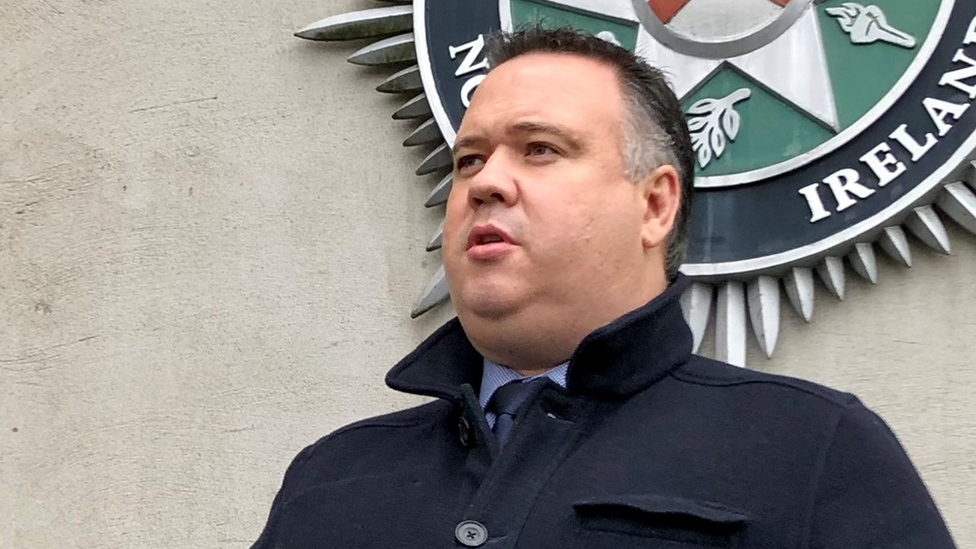Omagh police shooting: Political leaders united in the face of violence
- Published

Political leaders met the chief constable on Friday morning
If you want to know what 25 years of the Good Friday Agreement has achieved have a look - and a listen - to the five senior figures standing side by side to condemn the brutal attack on Det Ch Insp John Caldwell.
We cannot know what was in the minds of the attackers who gunned him down in Omagh on Wednesday night.
But if any part of it was to say the agreement has not worked it may just have had the opposite effect.
Some context here: The people currently trying to organise events to mark the accord's 25th birthday do so in the knowledge that the prospect of the cake being iced may be fading.
In other words, the big prize of restoring devolution at Stormont in time for the big day may be slipping from their grasp unless the gloom around a potential protocol deal lifts soon.
But while there's no doubt politics - and the stop-start nature of Stormont - has been the big failure of the past 25 years, the attempted murder of Det Ch Insp Caldwell has given our feuding politicians the opportunity to show they remain united against attempts to drag us back to violence.

One by one they delivered the required soundbites.
Sinn Féin's Michelle O'Neill: "I think it is so important in moments like this to stand united and we do stand here united as one voice in our condemnation of this horrific attack on a police officer."
The DUP's Sir Jeffrey Donaldson: "I say to the evil people who carried out this heinous attack - and to their organisation - you are not the future of this place. We stand against you."
Alliance's Stephen Farry: "All five parties are utterly united in rejecting terrorism and standing up for the rule of law."
The UUP's Doug Beattie: "I stand with the leader of Sinn Féin; of the DUP; of the Alliance Party; of the SDLP, and we tell these people who, through word or deed, tried to undermine our peace it will not work."
The SDLP's Colum Eastwood: "The people standing here are the representatives of the people. Those people who carried out this attack represent nobody. They will achieve nothing."
No-one could remember the last time all five parties stood together on the same platform - literal or metaphorical - and it was powerful, if symbolic.
The DUP leader raised the subject of police resources and the parties working together with the government to ensure the PSNI has the tools to do its job effectively.

Det Ch Insp John Caldwell has been involved in high-profile investigations
Then my colleague Jayne McCormack asked an uncomfortable question of Chief Constable Simon Byrne.
"You mentioned the resource issue that your force is facing. Would you like to see the budget issue dealt with by Stormont coming back? Because Sir Jeffrey talked about looking to Westminster now."
To the party leaders, she said: "You could sort this out by going back into Stormont tomorrow. It doesn't need to be through Westminster."
Cue swift swerve by the chief constable who said it was "a matter for politicians".
Sir Jeffrey quickly said security is "still dealt with by Westminster".
There were huge echoes of Dáithí's Law - which just this week was dealt with by Westminster because the DUP blocked the election of an assembly speaker to allow it to be passed at Stormont.
Tellingly, both Michelle O'Neill and Colum Eastwood steered the conversation away from division over Stormont and back to the message - unity in the face of adversity.
This was not the day to air divisions in public. But it was a reminder.
It's relatively easy for politicians to agree that violence should be a thing of the past.
But agreeing our political future is a different thing altogether.
- Published24 February 2023
